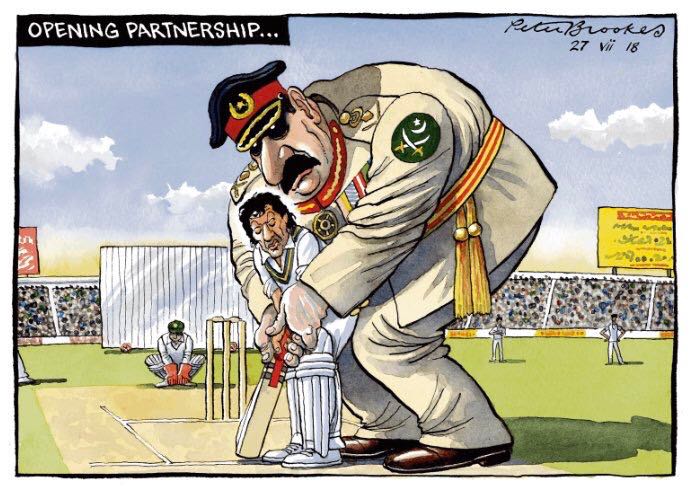
Pakistan’s third successive elections since 2008 are also being viewed as Pakistan’s dirtiest ever with both the European Union’s Observation Mission and the United States Department of State criticizing the entire process.
According to the EU Mission, Pakistan’s 2018 elections were marred by “allegations of interference” by the military, “curtailment on freedom of expression,” “systematic effort to undermine the former ruling party,” “emergence of extremist parties” in politics, and that “security personnel” were carrying on their own “parallel tabulation” during the entire electoral process.
The United States Department of State too expressed concern about the violent electoral process and the Human Rights Commission of Pakistan’s “concerns about flaws in the pre-voting electoral process, as expressed by the Human Rights Commission of Pakistan. These included constraints placed on freedoms of expression and association during the campaign period that were at odds with Pakistani authorities’ stated goal of a fully fair and transparent election.”
According to the EU Election Observation Mission Report, the elections “took place against a background of allegations of interference in the electoral process by the military-led establishment and the role of the judiciary as a political actor. Media outlets and journalists suffer from severe restrictions and curtailment on freedom of expression, which has resulted in extraordinary levels of self-censorship.”
Further, “A number of violent attacks, targeting political parties, party leaders, candidates and election officials, affected the campaign environment. Most interlocutors acknowledged a systematic effort to undermine the former ruling party through cases of corruption, contempt of court and terrorist charges against its leaders and candidates. The electorally sensitive timing, as well as the content of decisions of courts investigating or adjudicating on matters related to high-profile Pakistan Muslim League- Nawaz (PML-N) candidates, were perceived by several stakeholders as an indication of the politicisation of the judiciary. These cases reshaped the political environment ahead of the elections. Of further concern was the emergence of extremist parties with affiliations either to terrorist groups, or individuals linked to organisations that have used, incited or advocated violence.”
Furthermore, “EU observers noted the presence of security personnel inside and outside the polling stations in the polling stations observed. At times, they checked voter ID cards and directed voters to the right queue. During counting, they recorded and transmitted the results, giving the impression of an ongoing parallel tabulation.” The detailed report of the EU Mission can be read here.
The U.S. State Department echoed the conclusions of the European Union Election Observation Mission that “while there were positive changes to the legal framework for elections in Pakistan, these were overshadowed by restrictions on freedom of expression and unequal campaign opportunities.”
The short statement reaffirmed the US desire to “encourage a broadening of opportunities for political participation for all Pakistanis, and for the further strengthening of legitimate, democratic institutions” and also expressed “deep reservations over the participation of terrorist-affiliated individuals in the elections.”
![]()





